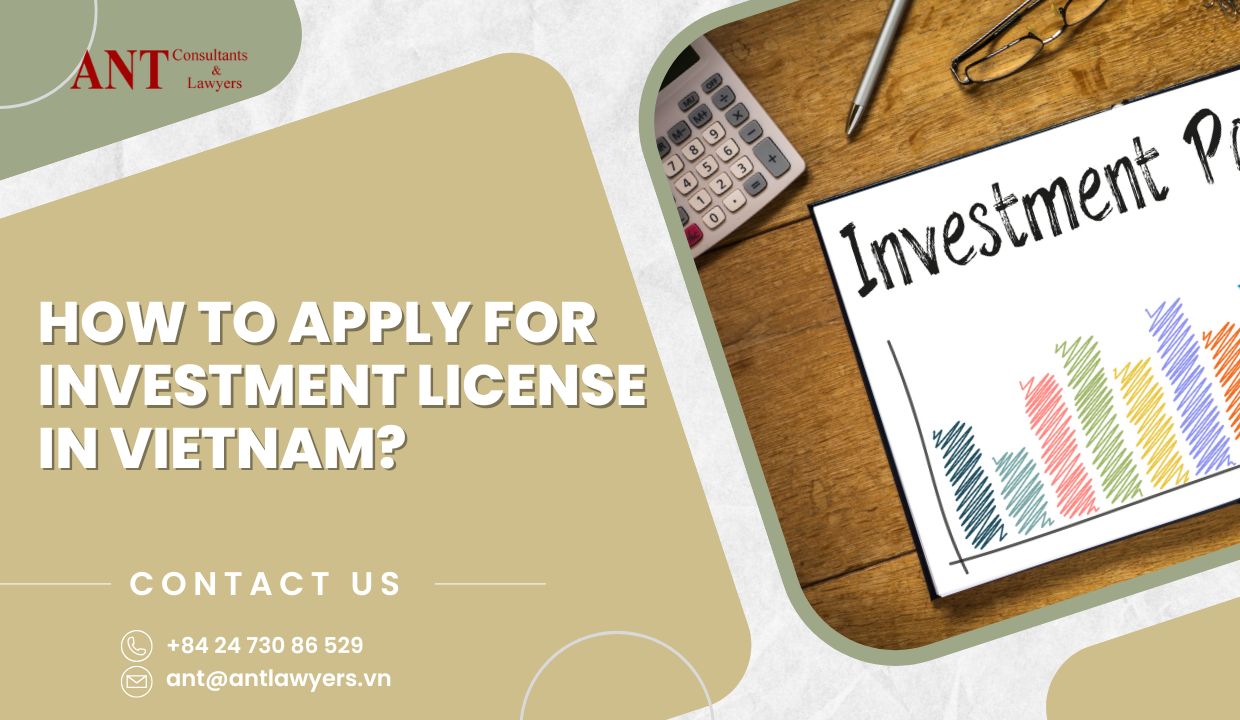Depending on the size, nature, and great impact on the environment, projects need special mechanisms and policies, projects that need land allocation, or projects that need to relocate large numbers of people, projects of foreign investors in the sea and islands that affect national defense and security, the procedures to apply for investment license in Vietnam may require approval of an investment policy.
In the framework of this article, we only refer to the procedure to apply for investment license in Vietnam, which is not subject to approval of investment policy.
What is an Investment Registration Certificate?
Investment registration certificate means a license issued by a competent State agency to organizations and individuals that fully satisfy the conditions for implementing an investment project, being foreign investors, or foreign organizations, organizations invest in projects in which foreign investors hold more than 50% of charter capital, or the majority of general partners are foreign individuals, for economic organizations that are partnerships.
The investment certificate contains information such as project name, investor’s name and address, investment project code, project location, land use area, objectives, and scale of project, project investment capital, project operation duration, investment project implementation schedule (capital and implementation of operational objectives), incentives, support and project conditions investment.
What are the forms of investment in Vietnam?
-Investment in establishing economic organizations.
-Investment to contribute capital, buy shares, or acquire capital contribution.
-Investment in the form of BCC contract.
-New investment forms and economic organizations according to the Government’s regulations.
What are the conditions for granting an investment registration certificate?
For an investment project that is not subject to approval of investment policies, an investor shall be granted an Investment Registration Certificate if it meets the following conditions:
-Investment projects that are not in industries or trades banned from business investment;
-Having a location for the implementation of the investment project;
-Investment projects in accordance with the planning;
-Satisfy the conditions on investment rate per land area and number of employees (if any);
-Meeting market access conditions for foreign investors.
What is the timeline for granting an investment registration certificate?
15 days from the date of receipt of the investor’s request for an Investment Registration Certificate, for an investment project that is not subject to a written approval of investment policies.
Steps to apply for investment license in Vietnam?
Normally, the procedure to apply for investment license for an investment project that is not subject to approval of investment policies is carried out as follows:
Step 1: The investor submits 01 application for the Investment Registration Certificate to the investment registration agency.
In case the investment project is implemented in 02 or more provincial-level administrative units, the investor shall submit a dossier to the Department of Planning and Investment of a province or centrally run city where the investor implements the project to set up an executive office to apply for the Investment Registration Certificate for the project.
Step 2: For an investment project that has already been operated, the investor submits a dossier according to regulations in which the investment project proposal is replaced by a report on the implementation of the investment project from the time of implementation. The declaration is up to the time of application for the Investment Registration Certificate.
Step 3: The investment registration authority shall issue the Investment Registration Certificate to the investor within 15 days from the date of receipt of the valid dossier when the project meets the conditions.
What authority to issue an Investment Registration Certificate?
The authority to issue, amend and revoke the Investment Registration Certificate is as follows:
-Management Boards of industrial parks, export processing zones, hi-tech zones and economic zones shall grant, adjust and revoke investment registration certificates for investment projects in industrial parks, export processing zones and zones, hi-tech, economic zones, unless otherwise specified.
-The Department of Planning and Investment shall grant, adjust and revoke the Investment Registration Certificate for investment projects outside industrial parks, export processing zones, hi-tech zones, and economic zones, unless otherwise prescribed other.
-The investment registration agency where the investor implements the investment project, locates or is expected to set up an executive office for the implementation of the investment project, issues, adjusts and revokes the Investment Registration Certificate for the following investment projects: i) Investment projects implemented in 02 or more provincial-level administrative units; ii) Investment projects implemented inside and outside industrial parks, export processing zones, high-tech zones and economic zones; iii) Investment projects in industrial parks, export processing zones, high-tech zones, economic zones where the management board of industrial parks, export processing zones, hi-tech zones, economic zones has not been established or is not within the scope of management of the Management Board of industrial parks, export processing zones, high-tech zones and economic zones.
The agency receiving investment project dossiers is the agency competent to issue the Investment Registration Certificate, unless otherwise specified.
Why the investors need to apply for investment license in Vietnam?
The procedure to apply for investment license in Vietnam, or the procedure for granting an investment registration certificate in Vietnam, is an important procedure for foreign investors. It is therefore imperative that they understand the requirements and procedures of the application process. According to the historic data, investing in Vietnam can be beneficial for companies that want to penetrate a fast-growing market like Vietnam. Applying for an investment registration certificate is the first step that an investor must take to participate in the market.
When applying for an investment registration certificate in Vietnam, there are a number of documents and information that an investor must provide. Information such as legal documents, business plans and other financial documents must be provided for the investment registration to be approved.
Completing the application for an investment registration certificate is a complicated process and requires knowledge and experience. It is important that foreign investors seek the help of experts or legal advisors who are lawyers in Vietnam who understand the procedure and required documents while doing business in Vietnam.








